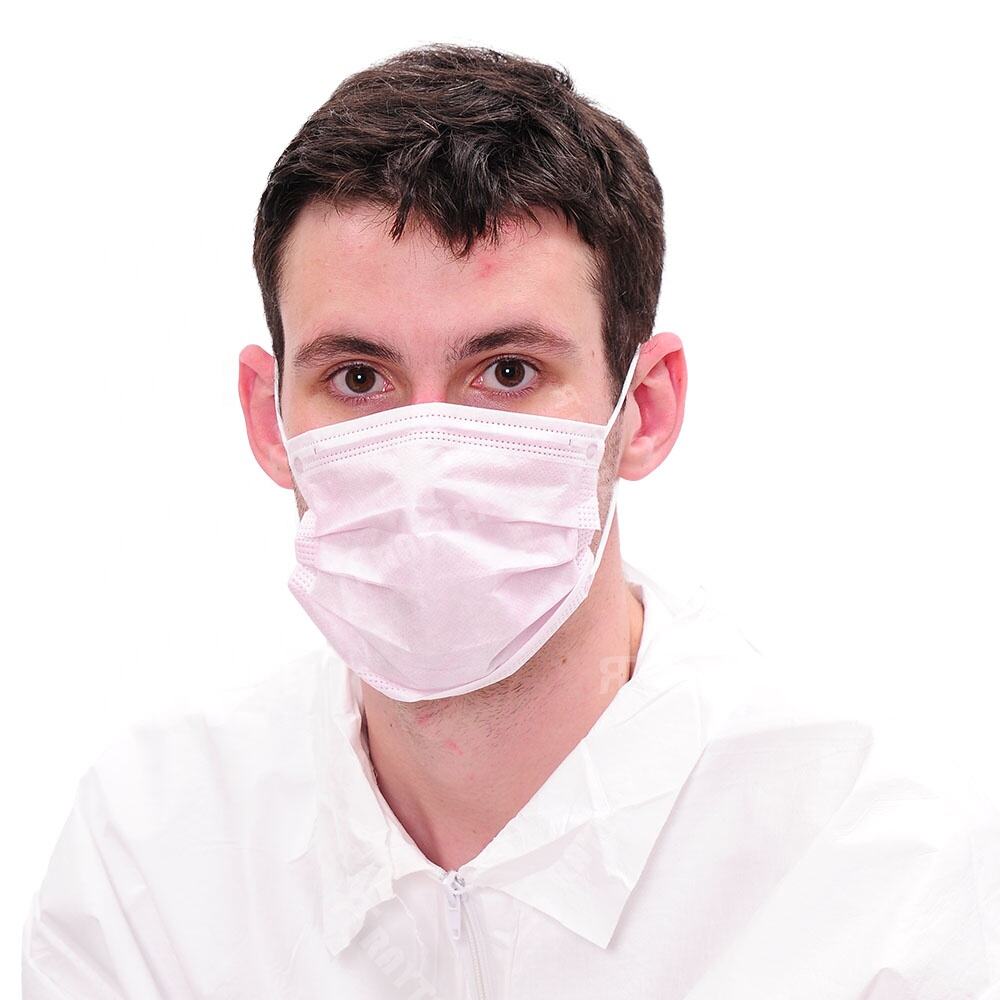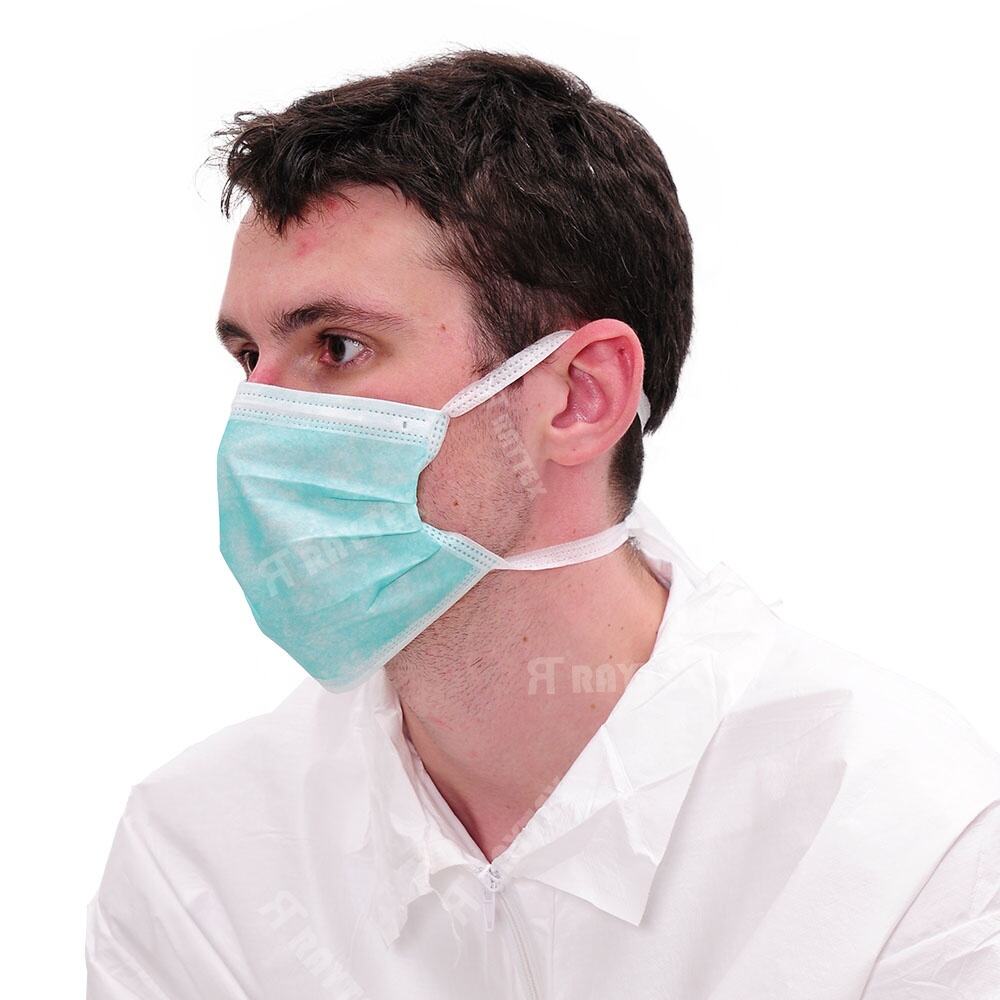Maski twarzowe chroniące przed cząstkami żywności są niezbędnymi narzędziami higieny w środowiskach związanych z przetwarzaniem, pakowaniem i przygotowywaniem żywności, zaprojektowanymi w celu zapobiegania zanieczyszczeniu produktów spożywczych poprzez zatrzymywanie kropli oddechowych, śliny i cząstek unoszących się w powietrzu pochodzących od pracowników. Maski te są zazwyczaj wykonane z lekkich materiałów nieprzędzonych, takich jak polipropylen (PP), które zapewniają doskonałą skuteczność filtracji dla większych cząstek (≥3 mikronów), jednocześnie umożliwiając swobodne oddychanie – co jest istotne dla komfortu użytkowania podczas długich zmian w pomieszczeniach z kontrolowaną temperaturą. Projektowanie koncentruje się na pokryciu i dopasowaniu: struktura zakładkowa lub kubkowata zapewnia pełne przykrycie nosa i ust, a gumki do uszu lub opaski na głowę utrzymują maskę w miejscu, uniemożliwiając powstawanie szczelin, przez które mogłyby przeniknąć cząstki. Wiele modeli posiada drucik nosowy, elastyczną metalową lub plastиковą taśmę dopasowującą się do górnej części nosa, co poprawia szczelność uszczelnienia i zmniejsza zaparowywanie okularów ochronnych lub gogli, które są często noszone razem z maską. Zgodność z przepisami dotyczącymi bezpieczeństwa żywności jest kluczowa, maski spełniają normy takie jak FDA 21 CFR 177.1520 (dotyczące materiałów kontaktujących się z żywnością) oraz UE 10/2011, co gwarantuje, że są wolne od szkodliwych substancji, barwników lub luźnych włókien, które mogłyby przeniknąć do żywności. Często są one określone jako „żywnościowe”, co oznacza, że zostały poddane rygorystycznym testom biokompatybilności i produkowane są w warunkach czystych (klasa 10 000 lub wyższa), aby uniknąć wprowadzania zanieczyszczeń podczas produkcji. Maski są jednorazowe z założenia, eliminując ryzyko zanieczyszczenia krzyżowego związanego z alternatywami wielokrotnego użytku – każda maska jest używana raz i wyrzucana, co jest zgodne z protokołami HACCP (Hazard Analysis and Critical Control Points). Są dostępne w różnych stylach, w tym jednowarstwowe do stref o niskim ryzyku (np. pakowanie suchych składników) oraz wielowarstwowe (2–3 warstwy) do stref o wysokim ryzyku (np. przygotowywanie potraw gotowych do spożycia), gdzie priorytetem jest skuteczność filtracji. Poza zapobieganiem zanieczyszczeniom, maski te chronią również pracowników przed wdychaniem unoszących się w powietrzu cząstek żywności, takich jak pył mączny czy przyprawy w proszku, które mogą powodować podrażnienia dróg oddechowych lub reakcje alergiczne. Wprowadzając te maski do codziennej pracy, przedsiębiorstwa spożywcze przestrzegają globalnych standardów jakości, zmniejszają ryzyko wycofywania produktów z rynku i chronią zdrowie konsumentów, co czyni je opłacalnym inwestycją w utrzymanie reputacji marki.


